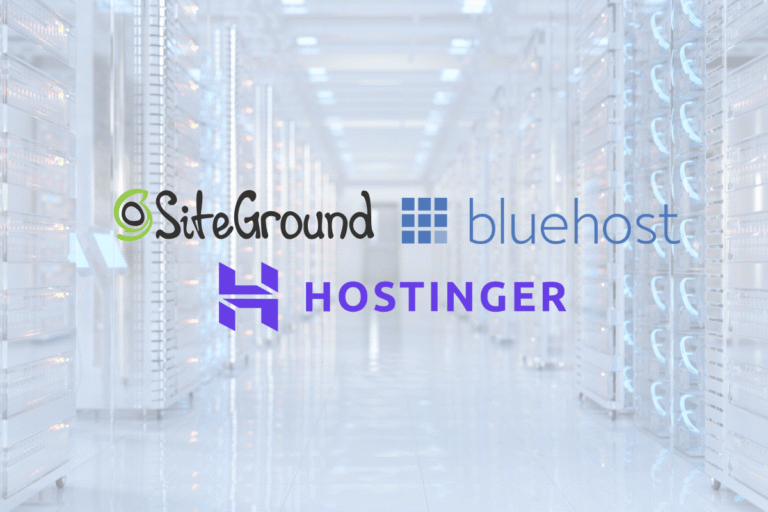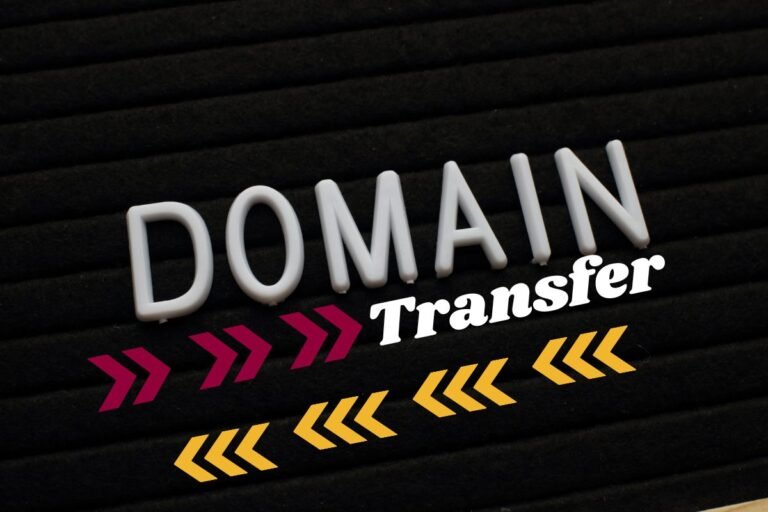If you’re choosing the best email hosting for business, you’re really deciding how your team will communicate, collaborate, and safeguard customer data. The wrong choice creates daily friction, missed messages, spam headaches, weak security. The right one quietly does its job, scales with you, and just works. In this guide, you’ll get a clear, side‑by‑side look at Google Workspace, Microsoft 365 Outlook (Exchange Online), Zoho Mail, and Titan so you can pick with confidence.
Quick Comparison And Who Each Is Best For
How We Evaluated
We focused on what matters in real life:
- Reliability and deliverability: inbox placement, spam filtering, uptime SLAs
- Security and compliance: MFA, DKIM/SPF/DMARC, encryption, archiving, HIPAA/GDPR readiness
- Admin and usability: setup, DNS guidance, mobile/desktop clients, migration tools
- Ecosystem and integrations: calendars, video meetings, docs, CRM/marketing tools
- Pricing and total cost: base price, storage, and the real cost of add‑ons (archiving, eDiscovery, advanced security)
We also considered support quality, data residency options, and growth paths as your team scales from 1 to 200+ users.
Best For Solopreneurs And Startups
- Google Workspace: Easiest collaboration and polished UX. Perfect if you already live in Docs, Drive, and Meet.
- Zoho Mail: Most affordable professional email with strong privacy stance and enough admin control to grow.
- Titan: Simple, low-cost email bundled with many domain registrars: great for getting professional@yourdomain.com live fast.
Best For Microsoft-Centric Teams
- Microsoft 365 Outlook (Exchange Online): If your world is Outlook, Excel, Teams, and SharePoint, this is the no‑brainer. Deep policy controls, best‑in‑class Exchange features, and enterprise‑grade compliance.
Best For Budget And Privacy
- Zoho Mail: Starting around a dollar per user per month on Mail Lite (varies by region), no ads, and strong privacy posture. Data centers in US, EU, India, and more.
Best For Ecommerce And Marketing Teams
- Google Workspace: Consistently excellent deliverability, easy shared inboxes/labels, and seamless ties to Google Analytics, Looker Studio, and marketing tooling. Titan can work for scrappy storefronts too, but Google’s collaboration and ecosystem usually wins once your list grows.
Google Workspace Review
Pros And Cons
Pros
- Top‑tier deliverability and spam filtering (Gmail). Minimal tuning needed for most small teams.
- Best‑in‑class collaboration (Docs, Sheets, Slides, Drive, Meet) tightly integrated with email.
- Strong admin controls with clear DNS setup wizards and security recommendations.
- Mature ecosystem and marketplace for CRM, project management, and automation.
Cons
- Advanced compliance (Vault, DLP) requires higher tiers.
- Can get pricey as headcount grows, especially if you need large storage or enhanced security.
- Outlook power users may prefer Microsoft’s desktop experience.
Pricing And Plans
Common business tiers (US pricing typically):
- Business Starter: around $6/user/month, 30 GB storage per user
- Business Standard: around $12/user/month, 2 TB per user
- Business Plus: around $18/user/month, 5 TB per user, Vault included
- Enterprise: custom pricing: advanced security, DLP, S/MIME controls
Note: Pricing can vary by region and promotions. Vault is bundled with Business Plus and Enterprise: on lower tiers you’ll need to upgrade for eDiscovery/archiving.
Security, Compliance, And Admin Controls
- Security: Enforced 2‑Step Verification, Security Center (higher tiers), context‑aware access, S/MIME support, DKIM/SPF/DMARC guidance.
- Compliance: ISO 27001/27018, SOC 2/3, GDPR commitments: HIPAA available with BAA for eligible customers.
- Admin: Granular roles, app access control, Vault for retention/legal holds (Business Plus+), data regions for select plans.
Deliverability, Spam Filtering, And Integrations
- Deliverability: Gmail is the benchmark. With SPF, DKIM, and DMARC aligned, inbox placement is consistently strong.
- Spam/Phishing: Excellent machine‑learning filters: optional advanced phishing/malware protections on higher tiers.
- Integrations: Native ties to Google Analytics, Looker Studio, Calendar, Meet: massive marketplace (HubSpot, Asana, Slack, Zoom, Notion, etc.).
Setup, Migration, And Usability
- Setup: Clear MX/SPF/DKIM wizards and automated checks. DMARC templates and alerts available.
- Migration: Built‑in tools for Outlook/Exchange, Microsoft 365, IMAP providers: third‑party tools abound.
- Usability: Web Gmail is fast and familiar: mobile apps are excellent. Labels, filters, and search reduce inbox chaos for growing teams.
Microsoft 365 Outlook (Exchange Online) Review
Pros And Cons
Pros
- Best for Outlook/Exchange power features: shared mailboxes, distribution groups, retention policies.
- Deep compliance and governance stack: aligns well with IT/security requirements.
- Tight integration with Teams, SharePoint, OneDrive: strong Windows/AD alignment.
Cons
- Admin center can feel complex if you’re new to Microsoft 365.
- Strict security defaults may require whitelisting legitimate automations/tools.
- Web Outlook is solid but some still prefer desktop Outlook for peak productivity.
Pricing And Plans
Common small business options (typical US pricing):
- Exchange Online Plan 1: about $4/user/month, 50 GB mailbox
- Exchange Online Plan 2: about $8/user/month, 100 GB mailbox + unlimited archive, advanced features
- Microsoft 365 Business Basic: about $6/user/month (web/mobile apps, Exchange, OneDrive, Teams)
- Microsoft 365 Business Standard: about $12.50/user/month (adds desktop Office apps)
- Microsoft 365 Business Premium: about $22/user/month (adds advanced security and device management)
Exact pricing varies by region/offer. Many advanced compliance/security capabilities arrive with Plan 2 or Business Premium.
Security, Compliance, And Admin Controls
- Security: MFA, Conditional Access (Azure AD), anti‑phishing (Defender for Office 365 add‑on or included in higher plans), S/MIME, DKIM/SPF/DMARC.
- Compliance: Extensive certifications: retention labels, legal hold, eDiscovery (Core/Advanced), message encryption (OME/AIP).
- Admin: Granular transport rules, journaling, litigation hold, M365 Defender integrations: strong role‑based access control.
Deliverability, Spam Filtering, And Integrations
- Deliverability: On par with Google when DNS is properly configured. Exchange transport rules give precise control.
- Spam/Phishing: Robust baseline filtering: Defender for Office 365 boosts protection and URL/file detonation.
- Integrations: Works best with Microsoft stack: broad partner ecosystem covers CRM, ERP, ticketing, and marketing.
Setup, Migration, And Usability
- Setup: Exchange‑savvy admins will feel at home. Wizards guide MX/SPF/DKIM/DMARC.
- Migration: Cutover, staged, and hybrid options: strong tooling from Microsoft and third parties.
- Usability: Desktop Outlook is unmatched for email triage, rules, and calendaring depth. Teams integration streamlines meetings and chat.
Zoho Mail Review
Pros And Cons
Pros
- One of the most affordable professional email platforms: privacy‑first with no ads.
- Clean web and mobile apps: solid admin controls for SMBs.
- Pairs nicely with Zoho’s ecosystem (CRM, Books, Projects, Campaigns) for an all‑in‑one stack.
Cons
- Some advanced compliance and eDiscovery features require add‑ons or higher bundles.
- Deliverability is good, but you may need to fine‑tune authentication and warm‑up for large marketing sends.
- Smaller marketplace vs Google/Microsoft.
Pricing And Plans
Zoho Mail (standalone) commonly offers:
- Mail Lite: around $1–$1.25/user/month (5 GB per user: region‑dependent)
- Mail Premium: around $4/user/month (50 GB per user: advanced features like larger attachment limits)
- Workplace Bundles: roughly $3–$7/user/month including Docs, Drive, Cliq, Meeting, etc.
Prices vary by country and billing term: Zoho often provides generous annual discounts.
Security, Compliance, And Admin Controls
- Security: 2FA, TOTP, app‑specific passwords, TLS, DKIM/SPF/DMARC guidance, S/MIME support.
- Compliance: GDPR commitments: data centers in the US, EU, India, and more. HIPAA‑aligned features available in select contexts (confirm directly for your use case).
- Admin: User roles, email retention policies, quarantine controls, IP restrictions. Zoho Mail eDiscovery/archival is available as an add‑on.
Deliverability, Spam Filtering, And Integrations
- Deliverability: Strong with correct DNS. For cold outreach or large lists, pair with Zoho Campaigns and follow best practices.
- Spam: Effective filtering with quarantine and allow/block lists: admin can tune policies.
- Integrations: Native ties to Zoho CRM, Projects, People, and Campaigns. Marketplace covers popular tools, though not as broad as Google/Microsoft.
Setup, Migration, And Usability
- Setup: Step‑by‑step DNS assistants for MX, SPF, DKIM: DMARC templates available.
- Migration: IMAP/POP importers and Outlook PST migration tools.
- Usability: Simple UI with streams (social‑style collaboration), tasks, and notes. Great value if you also adopt Zoho CRM/Workplace.
Titan Email Review
Pros And Cons
Pros
- Very quick to launch, often bundled with domain registrars and hosting providers.
- Clean interface with modern features like read receipts, follow‑ups, and email templates.
- Affordable per‑user pricing: good stepping stone from free webmail to branded email.
Cons
- Lacks the deep collaboration suites of Google/Microsoft.
- Compliance/eDiscovery options are limited compared with enterprise platforms.
- Support model can depend on the partner you bought through.
Pricing And Plans
Titan is sold primarily through partners (registrars/hosts). Typical ranges (check your provider):
- Basic/Starter: often around $1.50–$2.00/user/month
- Pro/Premium: roughly $2.50–$3.50/user/month with more storage and features (send later, read receipts, richer signatures)
Exact pricing and storage vary by reseller.
Security, Compliance, And Admin Controls
- Security: TLS in transit, 2FA, spam/virus protection, SPF/DKIM/DMARC setup guides.
- Compliance: Solid security baseline for SMB, but limited enterprise certifications and eDiscovery compared to Google/Microsoft.
- Admin: Simple user and alias management: basic retention and forwarding controls.
Deliverability, Spam Filtering, And Integrations
- Deliverability: Good for typical business correspondence when authentication is correctly set. For bulk marketing, use a dedicated ESP.
- Spam: Effective baseline filtering with allow/block lists.
- Integrations: Calendars/contacts are built‑in: fewer third‑party integrations. Some partners bundle webmail within their control panels.
Setup, Migration, And Usability
- Setup: Designed for speed, one‑click domain connect at many registrars: clear DNS prompts.
- Migration: IMAP import available: simple for small inboxes.
- Usability: Minimal learning curve. Handy productivity touches, follow‑ups, smart templates, and signature marketing for small teams.
Cross-Provider Benchmarks: Deliverability, Security, And Uptime
Deliverability And Spam Filtering
- Google Workspace and Microsoft 365 generally lead. With SPF, DKIM, and DMARC aligned, both achieve excellent inbox placement for transactional and one‑to‑one email.
- Zoho Mail is strong for typical business traffic: plan for gradual warming and list hygiene if you run newsletters.
- Titan performs well for regular business use. For campaigns, pair with a dedicated marketing platform (Mailchimp, Brevo, Klaviyo) regardless of your mailbox provider.
Best practices that matter more than the logo on your invoice:
- Publish SPF, DKIM, and a p=quarantine or p=reject DMARC once stable.
- Use subdomains for marketing and transactional sends (newsletter.yourdomain.com, mail.yourdomain.com).
- Warm new domains/IPs, keep bounce/complaint rates low, and maintain consistent sending patterns.
Security, Compliance, And Data Residency
- Google Workspace: Broad certifications: optional data region controls: HIPAA BAA for eligible customers: advanced DLP and context‑aware access on higher tiers.
- Microsoft 365: The most extensive compliance toolkit: data residency options: advanced eDiscovery and retention: granular Conditional Access.
- Zoho Mail: Strong privacy model: multiple global data centers: eDiscovery/archival available: good MFA and S/MIME support.
- Titan: Solid SMB‑grade security, but limited enterprise compliance attestations and discovery tools.
Performance, Support, And SLAs
- Uptime SLAs: Google and Microsoft advertise 99.9%+ with financially backed credits. Real‑world uptime is excellent. Zoho also delivers strong availability and publishes status transparently. Titan’s uptime is solid for SMB use (SLA details may depend on the partner).
- Support: Google and Microsoft offer 24/7 for paid plans. Zoho provides email/chat support with priority tiers. Titan support often runs through the reseller: response times are generally good for small business needs.
Pricing And Total Cost Of Ownership
Base Plans And Storage Limits
- Google Workspace: From ~30 GB/user (Starter) to 2–5 TB/user (Standard/Plus). Storage drives cost as you scale, especially with large file workflows.
- Microsoft 365: Exchange mailboxes from 50 GB (P1/Basic) to 100 GB (P2), plus OneDrive/SharePoint storage in Business plans. Desktop Office apps add cost but may replace other tool subscriptions.
- Zoho Mail: 5 GB/user on Lite, 50 GB on Premium: Workplace bundles add Docs/Drive/Meet equivalents at low cost.
- Titan: Lower storage per user vs big suites but plenty for typical SMB mailboxes.
Add-Ons: Archiving, Encryption, And eDiscovery
- Google Workspace: Vault (included in Business Plus/Enterprise) for retention, legal holds, and eDiscovery. Advanced DLP and context‑aware access in higher tiers. S/MIME supported.
- Microsoft 365: Exchange Online Archiving (Plan 2 or add‑on), Core/Advanced eDiscovery, Information Protection (AIP), and Defender for Office 365 for advanced threat protection.
- Zoho Mail: Zoho Mail Archival/eDiscovery available as an add‑on: S/MIME, retention policies, and admin logs included.
- Titan: Basic retention and security: no full eDiscovery stack.
Discounts, Annual Billing, And Growth
- Annual billing usually knocks 10–20% off vs monthly across providers.
- Growth triggers: shared mailboxes, alias needs, and storage headroom. Track when certain teams (legal, finance, healthcare) need compliance features, upgrading a subset of users is often cheaper than moving everyone.
- Hidden costs: migrations, training, security add‑ons, and time spent troubleshooting deliverability. Sometimes the more expensive plan is cheaper when it prevents operational drag.
Choosing The Right Provider For Your Business
Decision Framework By Team Size And Tech Stack
- Solo to 3 users
- Budget‑first: Zoho Mail or Titan. You’ll get professional email without the suite overhead.
- Collaboration‑first: Google Workspace. Real‑time docs and Meet keep you moving.
- 4 to 20 users
- Microsoft stack or Outlook power users: Microsoft 365 Business Standard or Exchange Online P2.
- Mixed tools/startup stacks: Google Workspace Business Standard for easy sharing and top deliverability.
- Privacy/value: Zoho Workplace Standard for an all‑in‑one at a low price.
- 20 to 200 users
- Rigorous compliance/IT governance: Microsoft 365 (Business Premium/E3‑like capabilities).
- Modern, cloud‑native teams: Google Workspace Business Plus for Vault and stronger security.
- Cost‑optimized suites: Zoho Workplace Professional with archival add‑on where needed.
Migration And Setup Tips
- Plan DNS in advance: lower TTL 24–48 hours before MX cutover.
- Authenticate everything: SPF, DKIM, and DMARC with alignment. Start with p=none, then move to p=quarantine/reject after a week or two of monitoring.
- Stage the move: migrate leadership and shared mailboxes first: validate filters and forwarding rules.
- Audit devices: enforce MFA and require modern clients (disable legacy IMAP/POP where possible).
- Warm up sending: especially for newsletters or transactional mail from a new domain/subdomain.
When To Switch Or Run A Hybrid Setup
- Switch when your current platform blocks workflows (storage constraints, missing compliance features, unreliable deliverability).
- Hybrid works when you need time: keep marketing on your ESP subdomain while moving staff mailboxes. Or split departments, legal on Microsoft 365 for eDiscovery, creative on Google Workspace for collaboration. Use proper routing and shared directories to minimize friction.
Conclusion
If you want the best email hosting for business, pick the platform that matches how your team actually works.
- Choose Google Workspace if collaboration speed and effortless deliverability top your list.
- Choose Microsoft 365 if you need Outlook/Exchange depth, Teams/SharePoint integration, and enterprise‑grade compliance.
- Choose Zoho Mail if you want a privacy‑friendly, budget‑smart solution that scales with an all‑in‑one suite.
- Choose Titan if you need a fast, professional setup at the lowest cost as you get your brand off the ground.
No matter what you pick, lock in SPF, DKIM, and DMARC, train your team on MFA and phishing, and consider archiving early if you’re in a regulated space. Do those right, and your email platform fades into the background, exactly where great infrastructure belongs.
Key Takeaways
- For the best email hosting for business, choose Google Workspace for top collaboration and deliverability, Microsoft 365 for Outlook/Teams depth and compliance, Zoho Mail for budget and privacy, and Titan for the fastest low‑cost professional setup.
- Harden your environment from day one with SPF, DKIM, DMARC (move to p=quarantine/reject after monitoring), enforce MFA, and enable archiving/eDiscovery if you have regulatory needs.
- Expect Google and Microsoft to lead deliverability; warm new domains, use subdomains for marketing, and send bulk campaigns through a dedicated ESP to protect inbox placement.
- Plan total cost beyond sticker price—factor storage, security add‑ons (Vault, Defender, archival), migration and training; annual billing typically saves 10–20% and upgrading only compliance‑heavy users can cut costs.
- Match the platform to team size and stack: 1–3 users go Zoho or Titan, 4–20 favor Microsoft 365 or Google Workspace, and 20–200 pick Microsoft for governance or Google for cloud‑native speed—hybrid setups can ease transitions to the best email hosting for business.
Frequently Asked Questions
What is the best email hosting for business if our team lives in Google Docs and Meet?
Google Workspace is typically the best email hosting for business when collaboration is your priority. Gmail’s deliverability and spam filtering are excellent, and Docs, Sheets, Drive, and Meet are tightly integrated. Admin wizards simplify SPF, DKIM, and DMARC setup. Vault and advanced security arrive on higher tiers.
What’s the best email hosting for business if we rely on Outlook, Teams, and SharePoint?
Microsoft 365 Outlook (Exchange Online) is the no‑brainer for Microsoft‑centric teams. You get deep Exchange features, robust compliance (eDiscovery, retention, Conditional Access), and tight Teams/SharePoint integration. Plan 2 or Business Premium tiers unlock advanced security and archival. Desktop Outlook remains unmatched for rules, calendaring, and triage.
Zoho Mail vs Titan: which is better for startups on a tight budget?
Zoho Mail offers the lowest ongoing cost with strong privacy, solid admin controls, and optional Workplace apps—great for scaling affordably. Titan is fastest to launch via registrars, with modern features like templates and follow‑ups. Choose Titan for quick, simple branded email; choose Zoho for suite value and growth.
How do deliverability and spam filtering compare among Google Workspace, Microsoft 365, Zoho Mail, and Titan?
Google Workspace and Microsoft 365 generally lead when SPF, DKIM, and DMARC are aligned. Zoho Mail is strong for typical business traffic but may need warming for large sends. Titan performs well for everyday correspondence. For newsletters or promos, use a dedicated ESP to protect domain reputation.
Do small businesses need a dedicated IP to improve deliverability?
Usually no. Shared IPs from reputable hosts perform well if you authenticate (SPF, DKIM, DMARC), maintain list hygiene, warm new domains, and keep complaints low. Dedicated IPs help only if you send consistent high volumes and can maintain stellar reputation; otherwise they can hurt more than help.
Can I keep my web hosting or registrar separate from my email hosting?
Yes. Point your domain’s MX records to any email provider while keeping website hosting elsewhere. This is common and often recommended for reliability and security. Just coordinate DNS updates (MX, SPF, DKIM, DMARC), lower TTL before cutover, and test thoroughly to avoid delivery interruptions.



